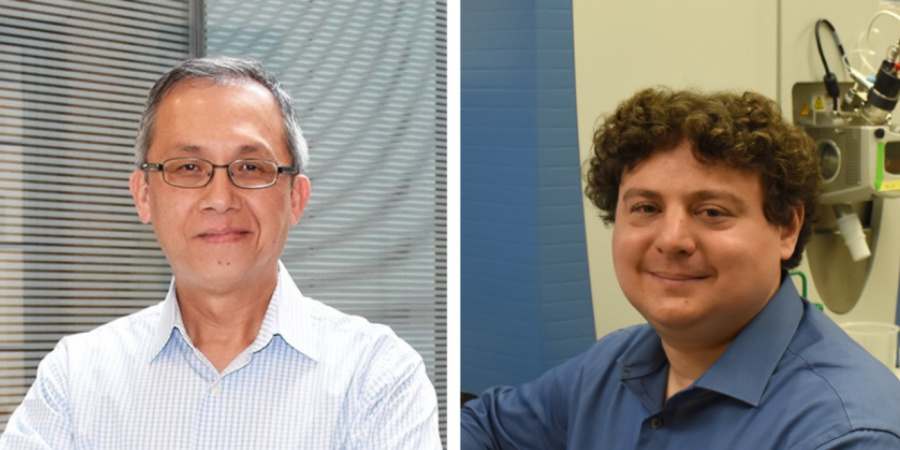
New Faculty and Leadership Appointments Expand Proteomics and Metabolomics Shared Resource
Cores Day 2023 happens on Sept. 13, and we want to spotlight rising scientists who are leading Wistar’s Proteomics & Metabolomics Facility and their own research labs.
The Wistar Institute is pleased to announce the promotions of Hsin-Yao Tang and Aaron Goldman to assistant professors in the Molecular & Cellular Oncogenesis Program of the Ellen and Ronald Caplan Cancer Center, and co-scientific directors of the Proteomics & Metabolomics Facility, at The Wistar Institute.
Drs. Tang and Goldman conduct research using mass spectrometry-based proteomics and metabolomics technologies to better understand mechanisms that underly disease, identify potential therapeutic targets, and discover biomarkers for diagnosis and other applications. Both researchers direct the Proteomics & Metabolomics Facility at the Institute. This facility is a shared resource for Wistar scientists and external scientists that provides support for experiments and analysis of proteins, metabolites, and lipids using mass spectrometry.
Hsin-Yao Tang, Ph.D., was formally trained in biochemistry and molecular biology with a Ph.D. from the Institute of Molecular and Cell Biology in Singapore. In 2000, Tang joined Wistar as a postdoctoral fellow where he played a key role in developing innovative proteomics and quantitative mass spectrometry techniques implemented in the laboratory of Dr. David Speicher (now retired) and the Proteomics Facility. He was appointed the co-scientific director of the Proteomics & Metabolomics Facility.
The Tang lab applies cutting-edge mass spectrometry techniques to study proteome changes, protein-protein interactions, and post-translational modifications in cancer and other diseases. In certain studies, the Tang lab integrates additional omics technologies, particularly metabolomics and lipidomics, to enhance our understanding of disease pathogenesis and to identify crucial molecular contributors to disease.
Aaron R. Goldman, Ph.D., earned his B.S. in biological sciences from Carnegie Mellon University and a Ph.D. in cell and molecular biology from Stanford University. Goldman joined Wistar in 2014 as a postdoctoral fellow in the Speicher laboratory where he established mass spectrometry-based approaches, including analytical platforms for untargeted metabolomics and lipidomics, for systems-level studies of melanoma and ovarian cancer. He was appointed the co-scientific director in the Proteomics & Metabolomics Facility.
The Goldman lab applies state-of-the-art, high-resolution mass spectrometry with experimental and computational approaches to examine changes in polar metabolites, lipids, and proteins associated with cancer and other disease states. The Goldman lab pursues diverse research projects that include the discovery and validation of diagnostic biomarkers for early detection of diseases to improve patient outcomes and the study of therapy resistance mechanisms in cancers to identify potential targets that enhance treatment efficacy.